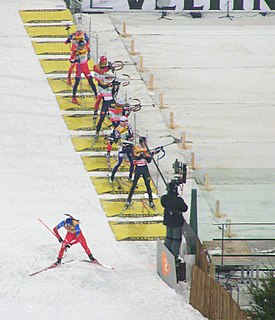
The International Olympic Committee is a non-governmental sports organisation based in Lausanne, Switzerland. Created by Pierre de Coubertin and Demetrios Vikelas in 1894, it is the authority responsible for organising the modern Summer and Winter Olympic Games.

The modern Olympic Games or Olympics are leading international sporting events featuring summer and winter sports competitions in which thousands of athletes from around the world participate in a variety of competitions. The Olympic Games are considered the world's foremost sports competition with more than 200 nations participating. The Olympic Games are held every four years, with the Summer and Winter Games alternating by occurring every four years but two years apart.

The Summer Olympic Games or the Games of the Olympiad, first held in 1896, is a major international multi-sport event held once every four years. The most recent Olympics were held in Rio de Janeiro, Brazil. The International Olympic Committee (IOC) organises the Games and oversees the host city's preparations. In each Olympic event, gold medals are awarded for first place, silver medals are awarded for second place, and bronze medals are awarded for third place; this tradition began in 1904. The Winter Olympic Games were created due to the success of the Summer Olympics.

The Winter Olympic Games is a major international multi-sport event held once every four years for sports practiced on snow and ice. The first Winter Olympic Games, the 1924 Winter Olympics, were held in Chamonix, France. The modern Olympic Games were inspired by the ancient Olympic Games, which were held in Olympia, Greece, from the 8th century BC to the 4th century AD. Baron Pierre de Coubertin founded the International Olympic Committee (IOC) in 1894, leading to the first modern Summer Olympic Games in Athens, Greece in 1896. The IOC is the governing body of the Olympic Movement, with the Olympic Charter defining its structure and authority.

The 1948 Summer Olympics, officially known as the Games of the XIV Olympiad, was an international multi-sport event which was held in London, United Kingdom from 29 July to 14 August 1948.

James Cleveland "Jesse" Owens was an American track and field athlete, and four-time Olympic gold medalist in the 1936 Games.

The 2004 Summer Olympic Games, officially known as the Games of the XXVIII Olympiad and commonly known as Athens 2004, was a premier international multi-sport event held in Athens, Greece, from 13 to 29 August 2004 with the motto Welcome Home.

The 2008 Summer Olympic Games, officially known as the Games of the XXIX Olympiad and commonly known as Beijing 2008, was an international multi-sport event that was held from 8 to 24 August 2008 in Beijing, China.

The 1924 Summer Olympics, officially known as the Games of the VIII Olympiad, were an international multi-sport event which was celebrated in 1924 in Paris, France.

Track and field is a sport which includes athletic contests established on the skills of running, jumping, and throwing. The name is derived from the sport's typical venue: a stadium with an oval running track enclosing a grass field where the throwing and some of the jumping events take place. Track and field is categorized under the umbrella sport of athletics, which also includes road running, cross country running, and race walking.
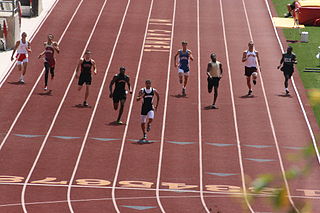
The 400 metres, or 400 metre dash, is a sprinting event in track and field competitions. It has been featured in the athletics programme at the Summer Olympics since 1896 for men and since 1964 for women. On a standard outdoor running track, it is one lap around the track. Runners start in staggered positions and race in separate lanes for the entire course. In many countries, athletes previously competed in the 440 yard dash (402.336 m)—which is a quarter of a mile and was referred to as the 'quarter-mile'—instead of the 400 m (437.445 yards), though this distance is now obsolete.

Caitlyn Marie Jenner is an American television personality and retired Olympic gold medal–winning decathlete.

The 2014 Winter Olympics, officially called the XXII Olympic Winter Games and commonly known as Sochi 2014, was an international winter multi-sport event that was held from 7 to 23 February 2014 in Sochi, Krasnodar Krai, Russia, with opening rounds in certain events held on the eve of the opening ceremony, 6 February 2014.
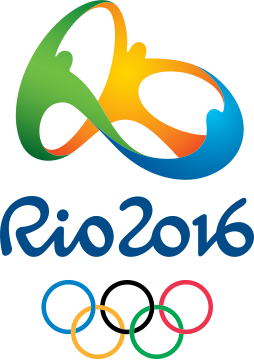
The 2016 Summer Olympics, officially known as the Games of the XXXI Olympiad and commonly known as Rio 2016, was an international multi-sport event that was held from 5 to 21 August 2016 in Rio de Janeiro, Brazil, with preliminary events in some sports beginning on 3 August. These were the first Olympic Games ever to be held in South America and the third to be held in a developing country, after the 1968 games in Mexico City and the 1988 games in Seoul, South Korea.
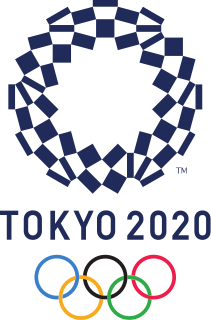
The 2020 Summer Olympics, officially known as the Games of the XXXII Olympiad and commonly known as Tokyo 2020, is an upcoming international multi-sport event that is scheduled to take place from 24 July to 9 August 2020 in Tokyo, Japan.
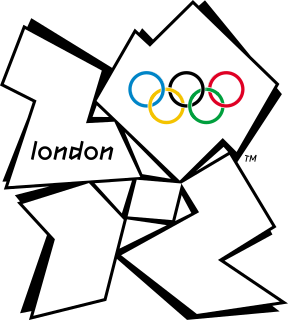
The 2012 Summer Olympics, formally the Games of the XXX Olympiad and commonly known as London 2012, was an international multi-sport event that was held from 27 July to 12 August 2012 in London, United Kingdom. The first event, the group stage in women's football, began on 25 July at the Millennium Stadium in Cardiff, followed by the opening ceremonies on 27 July. 10,768 athletes from 204 National Olympic Committees (NOCs) participated.

Usain St Leo Bolt is a Jamaican retired sprinter. He also is a world record holder in the 100 metres, 200 metres and 4 × 100 metres relay. His reign as Olympic Games champion in all of these events spans three Olympics. Owing to his achievements and dominance in sprint competition, he is widely considered to be the greatest sprinter of all time.

The 2024 Summer Olympics, officially known as the Games of the XXXIII Olympiad, and commonly known as Paris 2024, is a forthcoming international multi-sport event that is scheduled to take place from 26 July to 11 August 2024 in Paris, France.

The Youth Olympic Games (YOG) is an international multi-sport event organized by the International Olympic Committee. The games are held every four years in staggered summer and winter events consistent with the current Olympic Games format, though in reverse order with Winter Games held in leap years instead of Summer Games. The first summer version was held in Singapore from 14 to 26 August 2010 while the first winter version was held in Innsbruck, Austria from 13 to 22 January 2012. The age limitation of the athletes is 14 to 18. The idea of such an event was introduced by Johann Rosenzopf from Austria in 1998. On 6 July 2007, International Olympic Committee (IOC) members at the 119th IOC session in Guatemala City approved the creation of a youth version of the Olympic Games, with the intention of sharing the costs of hosting the event between the IOC and the host city, whereas the traveling costs of athletes and coaches were to be paid by the IOC. These Games will also feature cultural exchange programs and opportunities for participants to meet Olympic athletes.

